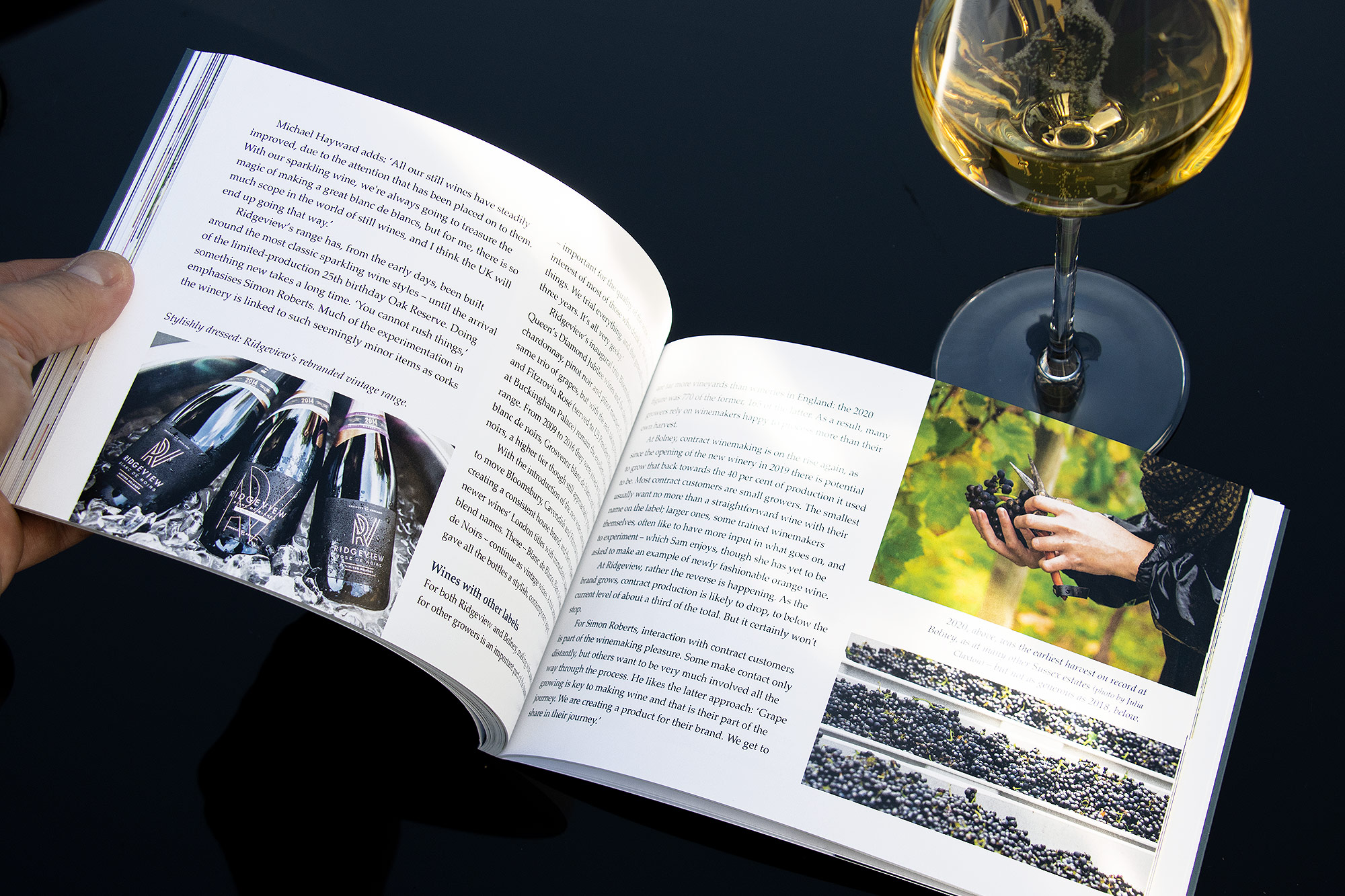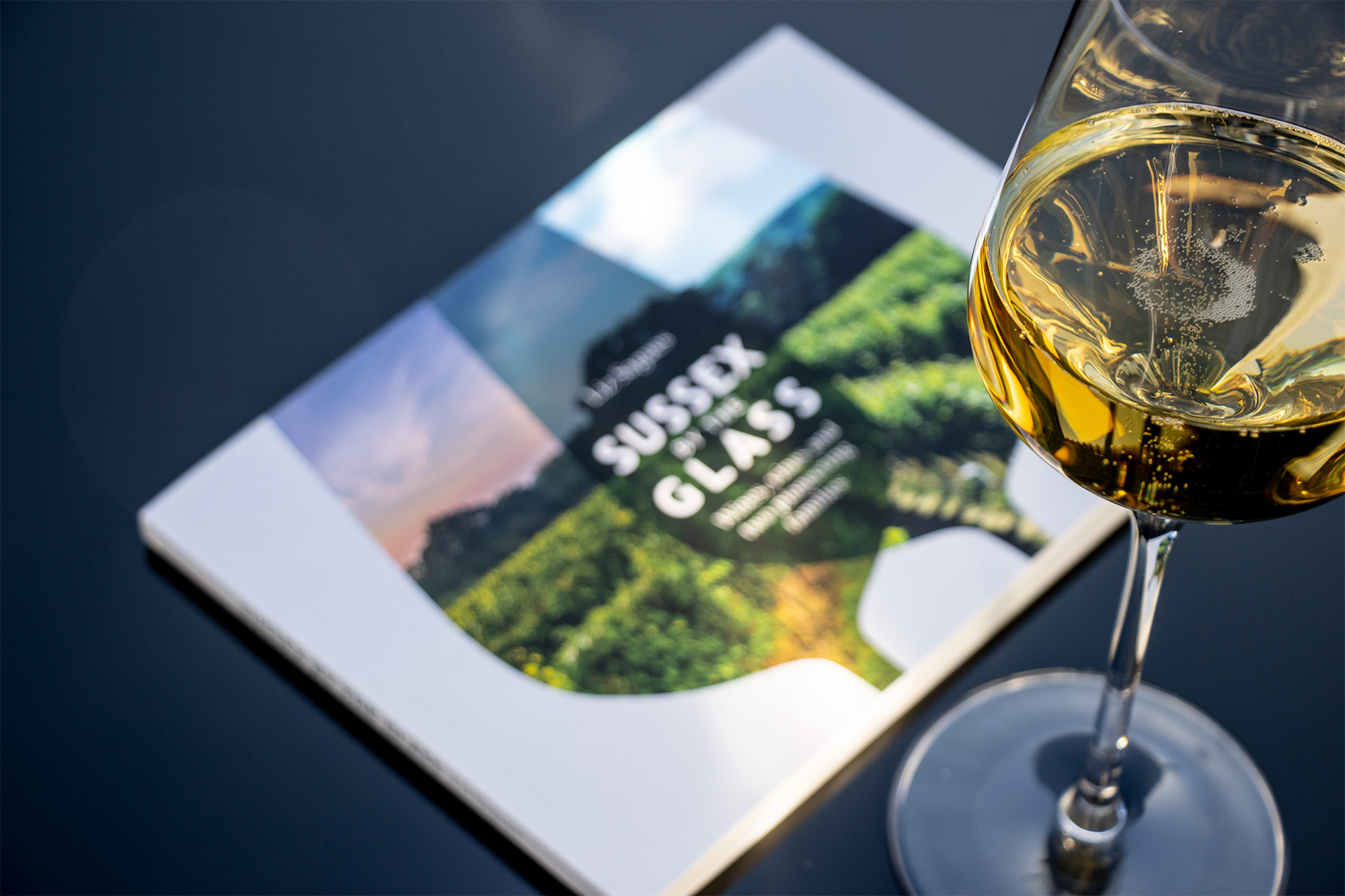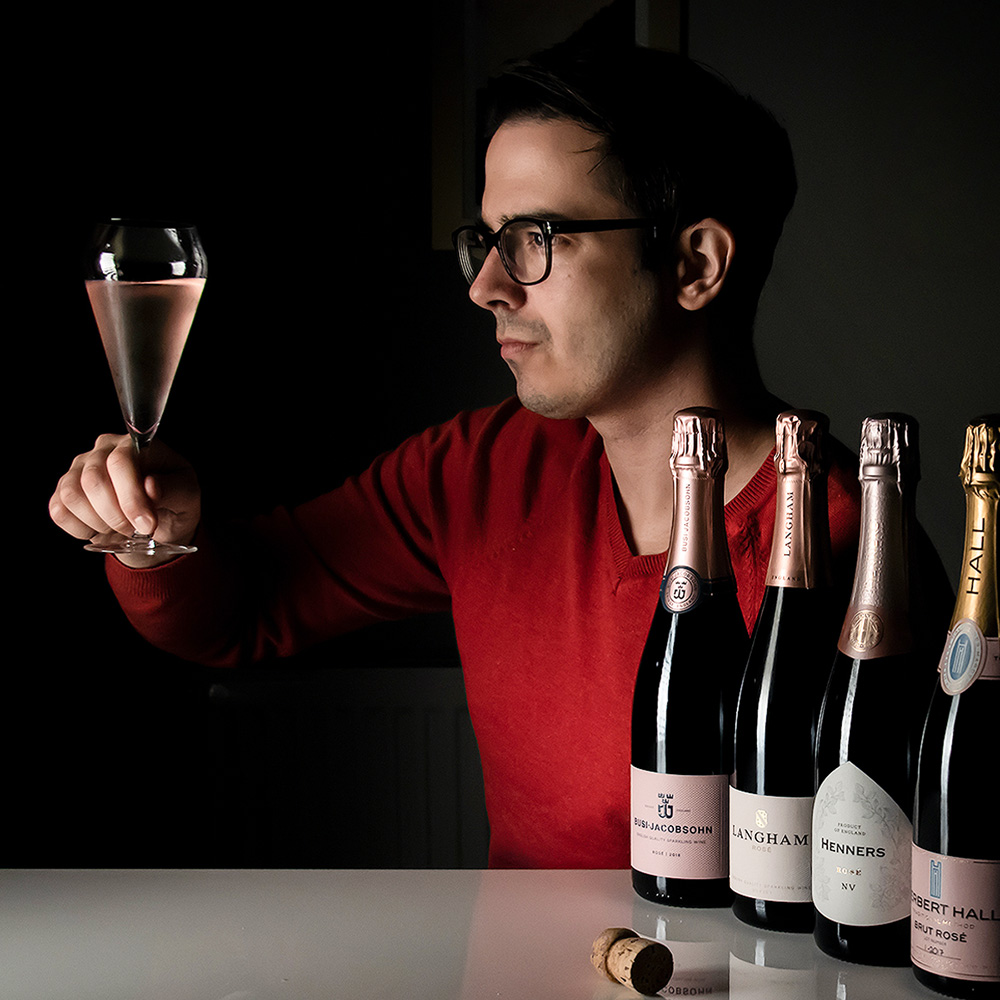With International Women’s Day just around the corner on Monday 8th March, award-winning wine journalist, Liz Sagues, has just launched her latest book, Sussex by the Glass. Following on from 2018’s A Celebration of English Wine, with this book, Liz focusses on one county and specifically two pioneering winemaking families: Ridgeview and Bolney Wine Estate. The book, released in time for the 2021 event, spotlights the success of the two skilled and enterprising women who lead these multi-award-winning wine businesses, Sam Linter and Tamara Roberts.
I was lucky enough to receive a pre-release copy of the book this week, which is available to order from both Ridgeview (£14 including delivery) and Bolney (£12 + P&P). As with Liz’s previous title, the book takes the reader through a journey of English Wine, from the early formative years through to the emergence of powerhouse producers like Nyetimber. The book is a great reminder that while English Wine is new, it’s not as new as one might think. Liz highlights the fact that Bolney will be celebrating their fiftieth anniversary next year, and Ridgeview celebrated their twenty-fifth last year. These two wineries have very much paved the way, and put the foundations in place, for what has become the modern English Wine industry.

Aside from countless medals, trophies, and international wine awards, this book’s most poignant narrative is the story of two hugely successful, multi-generational family businesses. Sussex by the Glass beautifully illustrates the origins, trials and tribulations of these inspiring businesses. I found it particularly interesting reading about the formative years of Bolney (then Bookers Vineyard), and the period from between the ’80s and ’90s through to the very first listing of an English red in a supermarket in 2007. This followed a committed approach from Sam Linter to drive quality forwards. And then the Roberts family’s pioneering approach to sparkling wine production, which saw Tamara Roberts leave a career as a Chartered Accountant and join the family business in 2004 as General Manager. Tamara is now CEO of Ridgeview, and is one of the most influential and leading figures in the English Wine industry.
At a time when gender equality (and equality as a whole) is very much on everyone’s minds, Liz makes a very valuable point about Sam and Tamara’s current position in their business: “What is so encouraging is that Sam Linter and Tamara Roberts didn’t get there because of any gender-equality intervention.” She goes on to say, “they have proved they have the skills and ability to run and grow their businesses”. This is one of the key messages throughout the book, and goes to show why such prominent female figures in the English Wine industry are increasingly successful in what they do.
I won’t go into the book’s contents in any more detail – you’ll need to buy a copy for that! But what I did really appreciate about the book is how much of a personal journey it takes you on. It’s a fascinating story of two remarkable women and two pioneering family businesses, and, all the while, you feel how personally connected Liz is to the story.
I had the chance to ask Liz a few questions about the book and about her own experiences as a writer.
John: As a committed commentator for the English Wine industry, what excites you most about the evolution of the industry over recent years?
Liz: “The rise in quality, variety and availability of excellent still wines. Of course there is very fine quality, and increasing choice, among the sparkling wines, but seeing a broader offer of good still wines makes the overall UK product much more tempting for wine drinkers, here and in export markets.”
Your latest book ‘Sussex by the Glass’ looks at two hugely successful English Wine family businesses with a prominent woman as the head. What inspired you to focus on these two winemakers, Bolney and Ridgeview, specifically?
“I wanted to be able to write about wine in England in a very human way, incorporating that into a broader story. So the multi-generational aspect of Bolney and Ridgeview – unusual still in the UK – made them obvious choices, especially as there are significant anniversaries for them immediately before and after publication of the book. I also wanted one estate where still wine was important, and one making only sparkling wine. The fact that both are headed by women is a bonus, adding extra interest (I wasn’t coming at this from a feminist perspective). Also, they are good friends, and neighbours in Sussex, where I also live. That prompted the regionality of the book, making it specific and manageable.”
What are your thoughts on the growing prominence of women in the English vineyard and winery?
“Well, it is often said women have better palates than men…But, more seriously, it’s great to see equality happening so naturally in the English Wine industry, without it being a feminist issue or the result of deliberate manipulation. My feeling is that all businesses should be run by the people best able to do the job. In the cases of Bolney and Ridgeview, and a number of other UK wine estates (some also mentioned in Sussex by the Glass) these happen to be women. Highly capable women do, as Sam Linter and Tamara Roberts make clear in the book, bring something particularly valuable to business.”
Are there any particular experiences or challenges you have faced as a female wine writer and critic?
“None whatsoever. All through my career (and that included mainstream journalism before specialising in wine) I’ve been fortunate to work with people who are influenced by their colleagues’ ability, interest and enthusiasm, not by their sex. Similarly, just about everyone in the wine world I’ve had dealings with has had the same approach.”
What advice would you give to anyone looking to get into wine writing?
“Have a go! Go to the maximum possible number of tastings, meet and get to know as many people as you can, appreciate their help, be accurate and informed in what you write, and be modest in expressing your opinions.”

In ‘Sussex by The Glass’ you cover each producers’ favourite wine from their range. Do you have your own favourite wines from Ridgeview and Bolney?
With my first book on English Wine, I made it a rule never to name any favourite wines – I think that’s invidious when aiming to give a broad view of the subject. This book is a bit different, so I won’t enforce that rule now. I have very happy memories of the first wines that impressed me from each producer, and I still enjoy them many years on. So I’ll happily raise a glass of Ridgeview Bloomsbury and Bolney Pinot Noir to the skilled people responsible for them.
After ‘Sussex by the Glass’, do you have plans for any more regional or producer focussed English Wine publications?
Not at the moment. But if I do write another book on English Wine, I think it will take a quite different approach from either this one or its predecessor. There’s nowhere near enough variety of writing yet on wines produced in the UK. And while a regional book worked in the particular context of Sussex by the Glass, I do feel it’s too early yet to split UK wine production into tidy regional divisions.






Really pleased you’ve written this John! Until your post I had never heard of Liz and I have just ordered BOTH her books